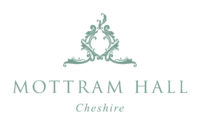
The North-west has been confirmed as a strategic component of the UK’s multi-billion pound space sector, with a dedicated North West Space Cluster formally launched in the region.
Led by the Science and Technology Facilities Council (STFC), alongside a consortium of key regional, national and international partners, the North West Space Cluster aims to support businesses, jobs, inward investment and create skills as the UK looks to double its share of the global space market by 2030.
The space industry is the UK’s fastest growing industrial sector, tripling in size since 2010 and now generating £16.5 billion per year. The North-west, already an internationally recognised hub for advanced manufacturing and engineering and digital technologies, saw 275% growth for space-related businesses in 2019-20 alone.
The formal launch of the North West Space Cluster took place at the Square Kilometre Array Observatory (SKAO) headquarters at Jodrell Bank and follows funding from the the UK Space Agency to support the development of several regional space hubs across the UK.
Dr Paul Bate, Chief Executive at the UK Space Agency, said:
“The UK Space Agency is committed to levelling up the UK space sector by catalysing investment, leveraging local strengths and attracting new talent to this exciting industry.
“Through the local growth cluster fund, we are accelerating the growth of space activities across the country, and I’m delighted to see the official launch of the North West of England’s Space Cluster.
“By capitalising on local expertise and improving connections across the UK space landscape with clusters, we can stimulate the investment, innovation and partnerships needed to cement the UK’s role as a science superpower and spacefaring nation.“
Professor Philip Diamond, SKAO Director-General, said:
“I am delighted that the North West Space Cluster is being launched at SKAO HQ, alongside our long-time partners STFC.
“Science is based on collaboration, and this new cluster will create links between business and academic institutions, developing a broader space community in which we can share expertise and learn from one another in support of our respective missions.
“As the major international hub for space science through radio astronomy with its headquarters in the North West of England, the SKAO exemplifies how this region can be a magnet for highly skilled professionals.
“They bring with them knowledge and experience across a range of specialisms that enrich our organisations and the wider region. We are proud to be part of this exciting new endeavour.“




















 Cheshire Science Corridor a “showcase to the world” for women in STEM
Cheshire Science Corridor a “showcase to the world” for women in STEM  Macclesfield engineering group completes on US acquisition
Macclesfield engineering group completes on US acquisition